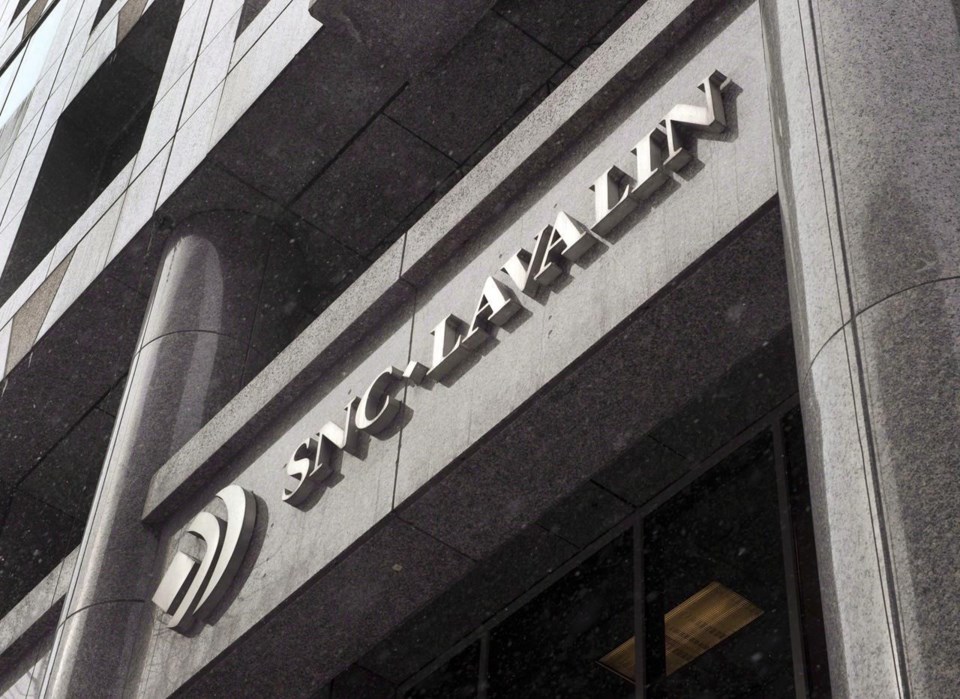MONTREAL — Less than five years after it embarked on a program of streamlining, SNC-Lavalin Group Inc. aims to blaze a "methodical" trail of mergers and acquisitions starting as early as 2024, its CEO says.
"When we reach the point, which we would expect during the course of next year, where we can look at M&A and actually carry out transactions, we'll take a very methodical approach to this and start with token acquisitions that build our capability," chief executive Ian Edwards told analysts on a conference call Thursday.
"Then we will continue and be at the cadence of our peers in M&A moving beyond '24. So yeah, very much in the plan, but we're not quite there yet."
As recently as 2017, SNC boasted a headcount topping 52,000 versus about 35,000 now, after the company sold off the last of its flagging oil and gas businesses in 2021 and veered away from fixed-price construction projects to become a pure-play engineering firm.
The fresh blueprint comes as SNC looks to wrap up a strategic review — complete with selloffs — and keep chipping away at a costly backlog of big, over-budget rail contracts. It also lands as the Montreal-based company raised its financial forecast for the year on the heels of healthy organic revenue growth.
On Thursday, SNC projected organic revenue growth of between 12 and 15 per cent in 2023, more than doubling its previous prediction of between five and seven per cent.
The second-quarter figures underwrite SNC’s confidence — as well as investors', whose enthusiasm boosted the company's share price by 10 per cent to close at $41.70 on the Toronto Stock Exchange.Â
Its engineering services saw 25 per cent organic growth year over year to $1.47 billion in revenue, accounting for more than two-thirds of the company’s total revenue.
SNC hit organic revenue growth “out of the park,” said Desjardins analyst Benoit Poirier in a note to investors.
Overall services bookings climbed nine per cent year over year to a record-high backlog of $12.4 billion, fuelled by demand for SNC’s engineering services in the United States.
“In the U.S., we continue to reap the benefits of our increased foothold in the market and the government's commitment to infrastructure spending,” Edwards told analysts on a conference call, describing the opportunities south of the border as "plentiful."
He pointed to the massive funding injection from the U.S. government via the Infrastructure Investment and Jobs Act and the Inflation Reduction Act. He also cited “key wins this quarter” related to electric vehicle battery plants.
The ongoing demand has prompted SNC to hire 2,400 employees since the start of the year, Edwards said.
The company's nuclear segment offers another area for growth. Edwards highlighted the Ontario government's announcement last month to construct three more small modular reactors at the site of the Darlington nuclear power plant — one is already built — as well as a large plant at Bruce Power on the shores of Lake Huron.
He said SNC hopes to wind down a strategic review this year that it launched in March as it eyes more asset selloffs and tries to sharpen its game as an engineering firm with a focus on green energy and infrastructure.
The company announced a deal last month to sell its Scandinavian engineering business, Systra Group, to a French consulting firm for 80 million pounds — about $136 million — the first big move under the revamp.
As another possible divestiture, Edwards again pointed to Linxon, a joint venture with Hitachi Energy that focuses on electrical substations.
"We are acutely aware that in parts of the business, we are we are below (target profit margins)," he said.
Meanwhile, the company's challenges with so-called lump-sum turnkey (LSTK) projects took less of a toll on its finances than in previous years, as the segment posted a loss of $13 million before interest and taxation versus $37 million a year earlier and consensus forecasts of $19 million in losses.
SNC knocked another $96 million off its LSTK backlog from three months earlier, reducing it to a still-hefty $422 million — but down from $828 million a year prior.
Under Edwards' stewardship since June 2019, SNC-Lavalin has shifted its focus to engineering and consulting services and away from lump-sum projects — fixed-price contracts under which companies must pay for any cost overruns themselves.
In recent quarters, the three fixed-price construction contracts bearing the bulk of the company's adjusted losses in its LSTK segment were Toronto's Eglinton Crosstown light-rail transit system, Ottawa's Trillium Line and the greater Montreal area's REM light-rail network extension.
"Testing and commissioning on our two Ontario projects is proceeding as scheduled. Our last project, REM, continues to progress well, with the South Shore portion having successfully opened on July 31," said Edwards — though the inauguration was marred by three disruptions in as many days this week.
"As we finalize the LSTK projects for our clients, we continue to pursue recoveries that are owed to us," he added, citing disputes around extra costs piled on by COVID-19 work hold-ups, supply chain disruptions, inflation and strike action.
On Thursday, SNC reported net income grew to $63.8 million for the three months ended June 30, towering over profits of $1.6 million from the same period the year before.
Revenues rose 14 per cent to $2.13 billion in the second quarter versus $1.87 billion a year earlier.
On an adjusted basis, diluted earnings notched 41 cents per share compared with 31 cents per share the year before.
The outcome beat analyst expectations of 30 cents per share, according to financial markets firm Refinitiv.
Aside from organic revenue growth, SNC's forecasted figures for the year remained the same.
This report by The Canadian Press was first published Aug. 3, 2023.
Companies in this story: (TSX:SNC)
Christopher Reynolds, The Canadian Press



